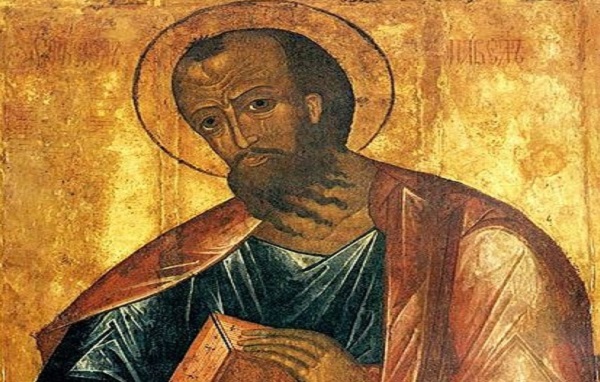Sermon on the Apostolic Reading for the 16th Sunday of Luke (2nd Corinthians 6:1-10)
3 February 2019In today’s passage from his Second Epistle to the Corinthians, St. Paul the Apostle reminds the people of Corinth of the abundant Grace that they have received from God. Such great blessings they had been granted since the time they received baptism, which include: being cleansed from all sins they had committed personally, and of Original Sin itself; becoming united with Christ and having received the Holy Spirit inside them; and they are born again spiritually! Furthermore, he urges the Christians of Corinth to earnestly retain this beneficial grace they have received from Christ, which they are enjoying infinitely as members of the Church. The God-inspired Apostle knows that various temptations, both external and internal ones, can lead faithful people astray. That is why, as an affectionate father, Paul is anxious to call the Christians to a steadfast attachment to God. He fears that some of them may prove themselves unworthy of the honor given to them, and lose God’s redemptive Grace (see verse 1).

Unfortunately, this is not a rare occurance, even in our own days. There may be some people who might first approach the Church with enthusiasm, seeking to learn about Orthodoxy and to receive baptism. Later on, however, a lack of interest appears or some other insignificant reason, and they fall away. They may no longer come to Church, and their life goes in the opposite direction from that of God’s will. Our Lord Jesus Christ had foreseen such a sad phenomenon. There will be hatred arising amongst men, He said. Many people will become apostates. Pseudo-prophets will come, leading a number of people away from God and as wickedness increases in society, the love which many people used to have will grow cold (see Matthew 24:10-12). To a major degree, all this will take place in the last days, when the world comes to its end. However, on another level these things happen in all times. That is why the Apostle is concerned about the Christians of Corinth who are dear to him, lest they renounce the Grace of Christ in some way.
So that he may help them to remain faithful to the end, and reminding them of the prophesy of Isaiah (“In an acceptable time I have heard You, and in the day of salvation I have helped You”-Isaiah 49:8), he says to them: “Behold, now is the acceptable time; behold now is the day of salvation” (verse 2). The Holy Fathers offer the following interpretation of the Prophet Isaiah’s words: Do not think that because I have invited you close to Me and I have offered you My redemptive Grace, that it will always be so. As long as you are in this life and before the Second Coming of Christ, there is time to decide whether you want to remain within the bounds of My grace. After that, the period of grace is over and judgment comes next.
There are some people who think in a superficial way, with this attitude: Now I am young and I want to live a free life! I will entertain myself and do what I like, and when I get old I will repent and seek shelter in the Church. It is this kind of deceptive thinking that the wicked one plants in the mind so that he can lead a person away from Christ’s flock, and then, like a wolf, devour them as “lost sheep.” Who can be sure that they will live to an old age? And even if someone does live a long life, having lived away from God so long that sin has become second nature, how can they be sure that they will be able to purge themselves of their sinful habits and repent in those last days sincerely? Saint Paul the Apostle remains unconditional on this point and gives an absolute answer on the matter: “It is impossible for those who were once enlightened, and have tasted the heavenly gift, and have become partakers of the Holy Spirit, … and in spite of all these have betrayed their faith, if they fall away, to renew them again to repentance.” (Hebrews 6:4-6).
My brothers and sisters, we cannot experiment with the matter of salvation for our souls, for which Christ, the glorious Son of God, died on the cross as a criminal.
There is also St. Paul the Apostle, who for the sake of carrying Christ’s faith to the nations went through all kinds of sufferings, as he is recalling them in today’s reading. He says, “We give no offense in anything, that our ministry may not be blamed: in much patience, in tribulations, in needs, in distresses, in stripes, in imprisonments, in tumults, in labors, in sleeplessness, in fasting …” and so many other misfortunes.
After all this, how could the Corinthians not be moved and make it a point of honor to become attached to Christ!
Dear brothers and sisters! Hearing what the God-inspired Apostle Paul had to say to us today, let us make the most important decision of our lives: to remain forever united with Christ and His One Holy Church, so that when we depart from this world, we will become worthy of living with Him in the everlasting delight of His Kingdom. Amen.






